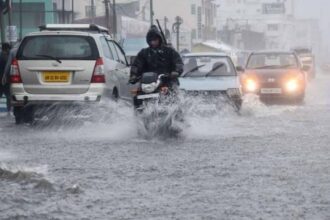In a long-anticipated decision, a German court has rejected a lawsuit brought by Peruvian farmer and mountain guide Saúl Luciano Lliuya against energy giant RWE. Lliuya argued that RWE’s global emissions contributed to the melting of glaciers near his hometown of Huaraz, Peru, increasing flood risks from the nearby Lake Palcacocha.
The higher regional court in Hamm dismissed the case on Wednesday, ruling that the flood risk to Lliuya’s property was not high enough for the claim to proceed. The court also ruled out further appeals, effectively ending the 10-year legal battle.
Despite the dismissal, environmental groups like Germanwatch hailed the ruling as historic, noting that the court confirmed for the first time under German civil law that major emitters can potentially be held liable for climate change-related risks.
Lliuya had sought €17,000 (about £14,250), a sum he intended to use toward building flood defenses for his community. His legal team argued that RWE, historically responsible for 0.5% of global CO₂ emissions, should cover a proportional share of the $3.5 million project.
Originally rejected by a lower German court in 2015, Lliuya’s case gained international attention after a successful 2017 appeal. While RWE maintains it is not active in Peru and is moving toward carbon neutrality by 2040, the case has become a rallying point for climate activists aiming to hold major polluters accountable worldwide.
Environmental groups hope the ruling will influence similar legal battles in other countries, marking a significant moment in global climate litigation.














